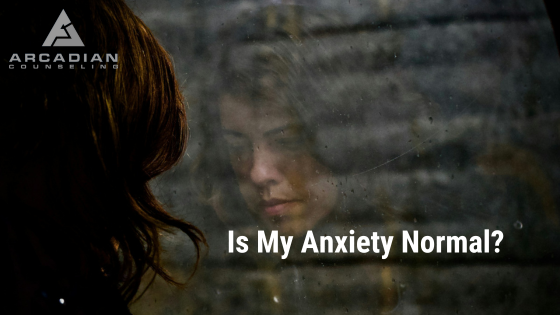Anxiety is something that we all experience at some point in our life. Whether it’s before a big presentation, a first date, or a job interview, that feeling of nervousness and worry is completely common (and often helpful). But sometimes anxiety can feel overwhelming or linger for what may seem too long, leaving you wondering: Is my anxiety normal?
The line between appropriate anxiety and something more serious isn’t always clear and often comes down to each individual and how they experience their world.
What Is Anxiety?
Anxiety is the body’s natural response to stress. It’s that fight-or-flight reaction you feel when something feels uncertain or threatening. A little bit of anxiety can be useful—it keeps you alert, helps you stay focused, and can even push you to take action when needed.
But anxiety becomes a problem when it’s constant, overwhelming, or interferes with daily life. So, how can you tell whether your anxiety is a normal reaction or something that needs more attention?

Anxiety as a Normal Response
Everyone gets anxious sometimes, and that’s perfectly okay. Here’s some situations where anxiety is totally normal:
- Life transitions: Starting a new job, moving to a new city, or dealing with a big life change (like having a baby or getting married) can trigger anxiety. These are significant events, and it’s natural to feel nervous or uncertain.
- Performance situations: Speaking in front of a group, taking an exam, or going for a job interview often comes with pre-performance anxiety. You care about how you’ll do, so feeling anxious about the outcome makes sense.
- Social situations: A little social anxiety is common when meeting new people or going to a gathering where you don’t know everyone. It can feel intimidating to put yourself out there, but it doesn’t necessarily mean something is wrong (or that you have Social Anxiety)
When Anxiety Becomes A Problem
Even though anxiety is a normal part of life, there are times when it crosses over from being a natural reaction to a more disruptive issue. Here are some signs that your anxiety might be more than a “normal” response:
- Persistent and excessive: If you feel anxious all the time—whether there’s an obvious trigger or not—it might be a sign that something more serious is going on. Anxiety that lingers for weeks or months, with no clear cause, should not be ignored.
- Physical symptoms: Anxiety can show up in physical ways, like racing heartbeats, dizziness, headaches, or muscle tension. But if these symptoms become frequent or severe and interfere with daily life, it’s likely a sign that your body is in a constant state of stress.
- Avoidance behavior: Anxiety can cause you to avoid situations that trigger discomfort. While it’s normal to skip something you’re not ready for, avoiding everyday activities—like socializing, going to work, or running errands—leads to isolation and ruins your quality of life. If anxiety is dictating your actions to the point where you’re missing out on life, it’s time to reconsider your approach.
- Interfering with daily life: If your anxiety is affecting your ability to work, taking care of your responsibilities, or maintaining relationships, it’s a warning sign.

What If It’s Affecting My Mental Health?
While it’s normal to feel anxious, it’s important to recognize when it might be tied to something deeper, like Generalized Anxiety Disorder (GAD), Panic Disorder, or Social Anxiety Disorder.
Some warning signs include:
- Frequent panic attacks (short bursts of extreme fear or discomfort that peak within minutes)
- Excessive worry that feels out of proportion to the situation
- Constantly feeling on edge or restless, even when there’s no clear reason
Coping with Anxiety
Most people with anxiety don’t need therapy or medication. Learning coping strategies, like deep breathing, mindfulness, or exercise, can make a big difference. Practicing these techniques regularly can help lower your baseline anxiety and make it easier to manage in the moment.
But if your anxiety continues to mess with your life, find an anxiety therapist you like and trust to help figure out strategies to manage it.

Go With Your gut
At the end of the day, you’re the best judge of your own anxiety. If you feel like your anxiety is affecting your quality of life, it’s worth taking a closer look. Don’t try to power through it on your own if it’s becoming overwhelming.
Anxiety may be normal, but that doesn’t mean it has to run the show. If you feel like your anxiety is running the show, find an awesome therapist you like and trust to help you get things under control.
James Killian, LPC is the Principal Therapist & Owner of Arcadian Counseling in Greater New Haven, CT where they specialize in helping over-thinkers, high achievers, and perfectionists reduce stress, increase fulfillment and enhance performance so they can move From Surviving To Thriving.

